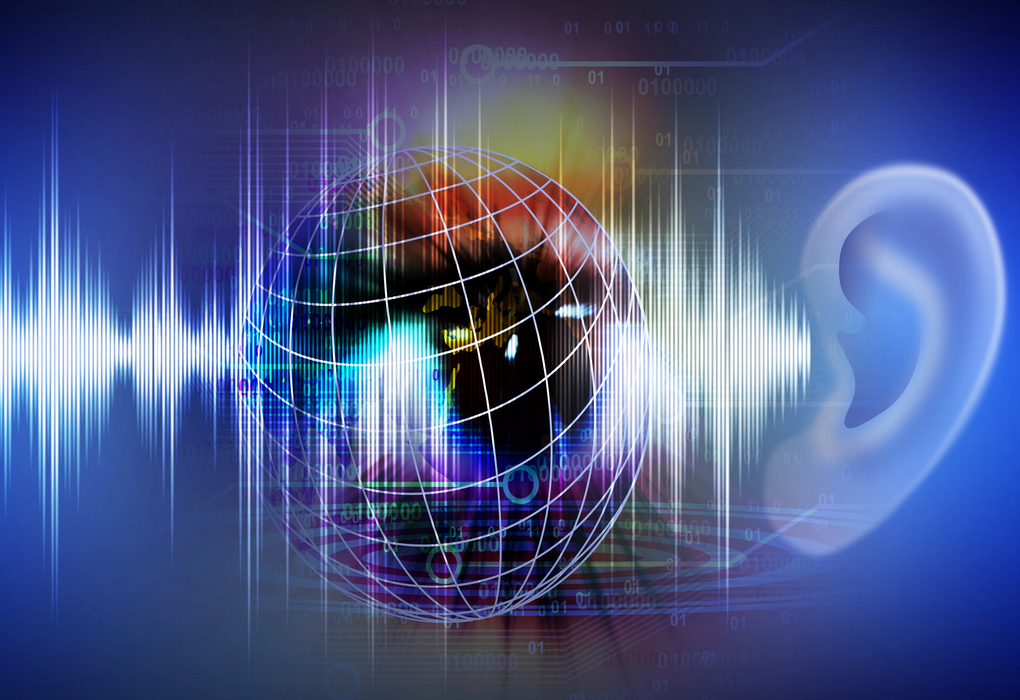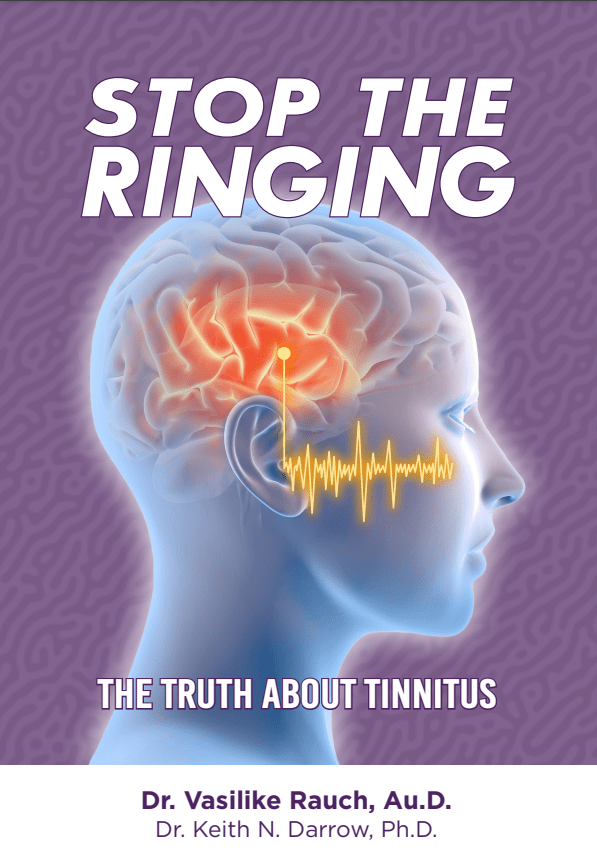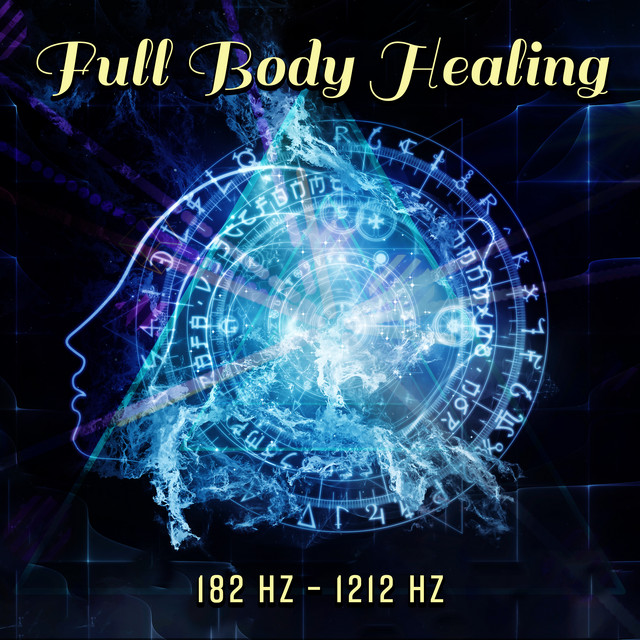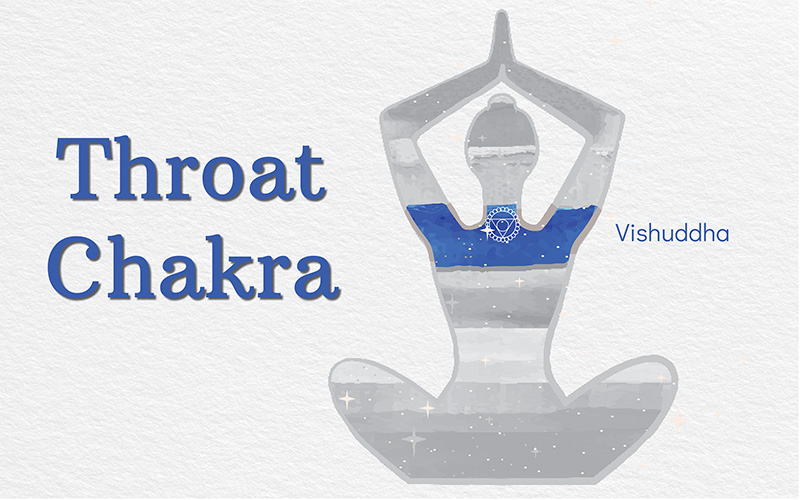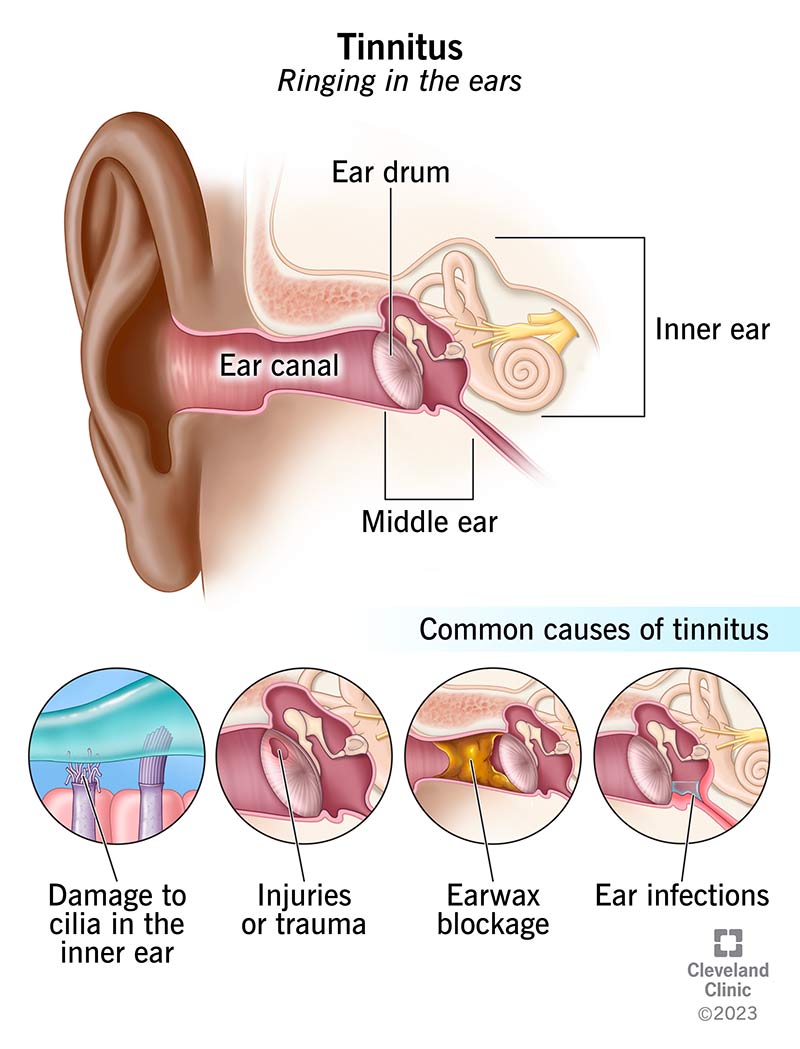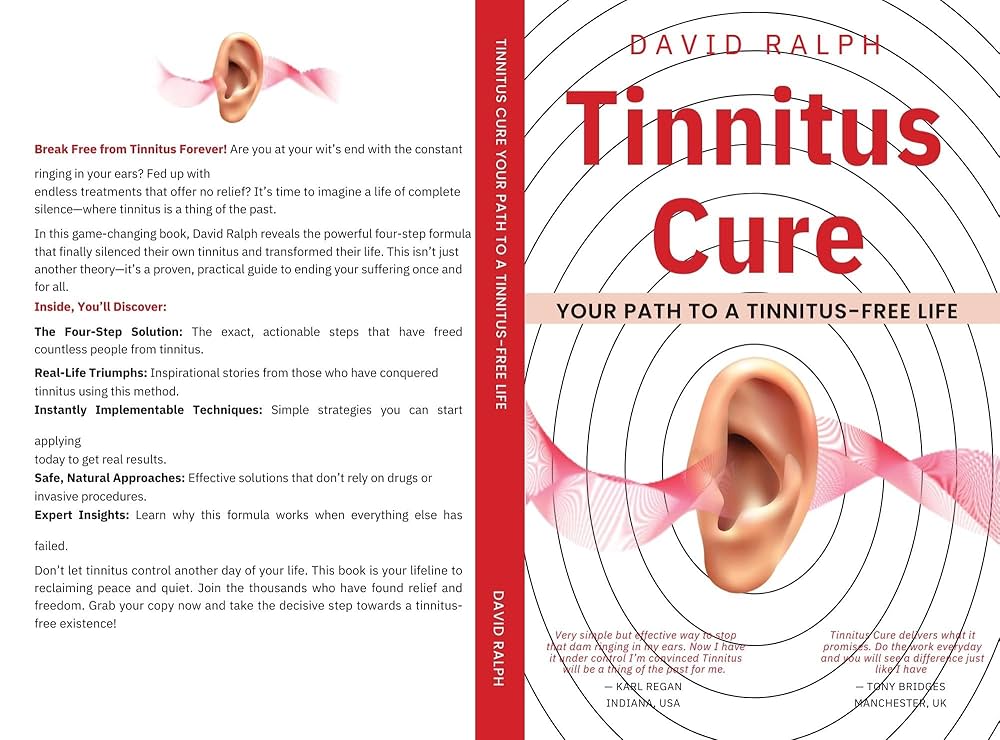Key Takeaways
- Tinnitus affects millions of people worldwide with persistent ringing, buzzing, or humming sounds that conventional medicine often struggles to treat effectively.
- Chakra healing, particularly focusing on the throat chakra (Vishuddha), is increasingly explored as a complementary approach for tinnitus symptom management.
- While scientific evidence for chakra healing specifically for tinnitus is limited, the stress reduction and relaxation benefits may indirectly help manage symptoms.
- Understanding both the traditional Eastern perspectives and Western scientific viewpoints can help you make informed decisions about integrating chakra work into your tinnitus management plan.
- Combining conventional treatments with mindful practices like chakra meditation may offer a more holistic approach to tinnitus relief than either approach alone.
That persistent ringing in your ears doesn’t have to control your life. For the millions suffering from tinnitus, finding relief can feel like an endless journey through medical appointments and disappointing treatment outcomes. As conventional approaches sometimes fall short, many are turning to alternative healing methods, including the ancient practice of chakra balancing.
Tinnitus—that frustrating internal noise that no one else can hear—affects approximately 15-20% of people worldwide. While medical science continues to research this complex condition, natural healing approaches like chakra work offer complementary pathways that address both the physical symptoms and emotional distress that often accompany tinnitus. The integration of these Eastern healing traditions with Western understanding creates a more holistic picture of how we might find relief.
Before diving into chakra healing specifics, it’s important to understand that no single approach works for everyone. Tinnitus varies dramatically between individuals in its causes, manifestations, and responses to treatment. This reality makes a personalized, multi-faceted approach essential for managing symptoms effectively.
The Truth About Tinnitus: What You Need to Know First
“Professional Hearing Management – Books …” from prohearingmgmt.com and used with no modifications.
Tinnitus isn’t actually a disease but a symptom of underlying conditions ranging from hearing loss to circulatory disorders. The phantom sounds—which may manifest as ringing, buzzing, hissing, or clicking—can be temporary or chronic, mild or debilitating. While approximately 50 million Americans experience tinnitus at some point, about 20 million struggle with chronic tinnitus, and 2 million face debilitating symptoms that severely impact their quality of life.
Conventional medicine traditionally offers limited solutions: hearing aids, sound masking devices, cognitive behavioral therapy, and in some cases, medication for associated anxiety or depression. However, these approaches often manage symptoms rather than addressing root causes, leaving many searching for complementary approaches that might offer deeper relief.
The emotional and psychological impact of tinnitus cannot be overstated. Many sufferers experience anxiety, insomnia, concentration difficulties, and even depression as they struggle to cope with persistent noise that others cannot hear. This mind-body connection creates an important opening for holistic approaches like chakra healing that address both physical symptoms and emotional wellbeing.
“Tinnitus is rarely just about the ears—it affects sleep, concentration, emotional health, and overall quality of life. This comprehensive impact makes integrative approaches particularly valuable.” — Journal of Alternative and Complementary Medicine
The frustration many feel with conventional treatments has fueled interest in alternative approaches, with searches for natural remedies for tinnitus increasing by over 30% in recent years. While scientific evidence for many alternative treatments remains limited, this doesn’t necessarily mean they’re ineffective—rather, they may work through mechanisms not yet fully understood by Western medicine.
Chakra Systems and Your Ears: The Claims Explained
“Open Root Chakra (256 Hz) – song and …” from open.spotify.com and used with no modifications.
The chakra system represents energy centers that traditional Eastern medicine believes run along the spine, from the base to the crown of the head. Each chakra corresponds to specific physical, emotional, and spiritual aspects of our being. These spinning wheels of energy (the literal translation of “chakra” from Sanskrit) are thought to influence our health when they become blocked or imbalanced, potentially manifesting as physical symptoms—including, some practitioners believe, tinnitus.
According to chakra healing philosophy, tinnitus may be connected to energy imbalances in several chakras, with the throat chakra (Vishuddha) and crown chakra (Sahasrara) being particularly significant. Practitioners suggest that blocked energy in these centers may manifest as disruptions to the auditory system, creating the phantom sounds experienced in tinnitus. While this energetic explanation differs dramatically from Western medical perspectives, the mind-body practices used in chakra healing offer potential benefits regardless of one’s belief in the underlying energy system.
The 7 Major Chakras and Their Traditional Healing Properties
Understanding the complete chakra system provides context for how practitioners approach tinnitus healing. Each energy center governs different aspects of physical and emotional health, with several potentially influencing ear function and auditory processing. The system functions as an interconnected whole, with imbalances in one area potentially affecting others. For those exploring alternative therapies, understanding progressive tinnitus management can offer additional insights.
- Root Chakra (Muladhara): Located at the base of the spine, governs security, stability, and basic survival needs. Imbalances may manifest as anxiety that worsens tinnitus perception.
- Sacral Chakra (Svadhisthana): Found in the lower abdomen, influences creativity, pleasure, and emotional processing. When blocked, emotional overwhelm may intensify tinnitus symptoms.
- Solar Plexus Chakra (Manipura): Centered in the upper abdomen, controls personal power, confidence, and metabolism. Imbalances can contribute to stress that exacerbates tinnitus.
- Heart Chakra (Anahata): Located near the heart, governs love, compassion, and harmony. When open, may help reduce the emotional distress associated with tinnitus.
- Throat Chakra (Vishuddha): Positioned at the throat, influences communication, self-expression, and hearing. Directly connected to ear function and often the primary focus for tinnitus work.
- Third Eye Chakra (Ajna): Centered between the eyebrows, controls intuition, perception, and neurological function. May influence how the brain processes and interprets sound signals.
- Crown Chakra (Sahasrara): At the top of the head, governs spiritual connection, consciousness, and nervous system function. Imbalances may affect overall neurological processing, including auditory pathways.
How the Throat Chakra (Vishuddha) Is Linked to Ear Health
“The Throat Chakra | Barn Life Recovery” from barnliferecovery.com and used with no modifications.
The throat chakra (Vishuddha) holds particular significance for tinnitus sufferers according to energy healing traditions. Located at the center of the neck, this fifth chakra governs not only verbal expression but all aspects of communication—including our ability to listen and process auditory information. Traditional practitioners believe the throat chakra directly influences the ears, hearing function, and the neurological pathways that interpret sound.
When the throat chakra becomes blocked or imbalanced, energy healers suggest this disruption can manifest as physical symptoms in the ear, throat, and jaw—potentially contributing to or exacerbating tinnitus. Signs of throat chakra imbalance may include communication difficulties, thyroid issues, frequent sore throats, and, some believe, hearing disruptions including tinnitus. The color blue is associated with this chakra, and healing practices often incorporate this color through visualization, gemstones like blue lace agate, or blue-toned environments.
Energy work focused on the throat chakra typically involves practices that encourage self-expression, authentic communication, and releasing suppressed emotions. From a more scientific perspective, these practices may help reduce tension in the jaw, neck, and ear canal—areas where physical tension can sometimes worsen tinnitus symptoms. The focus on emotional expression may also help address stress factors that many conventional medical practitioners acknowledge can intensify tinnitus perception. For those seeking alternative methods, understanding how progressive tinnitus management works can provide additional insights.
Popular Chakra Techniques Promoted for Tinnitus Relief
A variety of chakra-based practices are commonly recommended for those seeking tinnitus relief. These techniques range from simple at-home practices to more guided experiences with trained practitioners. While approaches vary, most combine elements of sound, visualization, meditation, and sometimes physical movement to address energy imbalances believed to contribute to tinnitus symptoms.
- Chakra Meditation: Focused meditation practices that direct attention and healing intention toward specific energy centers, particularly the throat chakra for tinnitus concerns.
- Sound Healing: Using specific frequencies, often through singing bowls, tuning forks, or chanting, to restore harmonic balance to the chakras and auditory system.
- Crystal Therapy: Placement of specific healing stones like blue lace agate, aquamarine, or clear quartz on or near the throat and ear areas to help balance chakra energy.
- Mantra Recitation: Repeating specific sounds or phrases, particularly the “HAM” seed sound associated with the throat chakra, to create vibrational healing.
- Mudras: Specific hand positions that direct energy flow through the body, particularly those associated with the throat chakra and auditory functions.
- Visualization: Guided imagery that focuses on seeing blue healing light surrounding the throat, ears, and head to promote energy balance and healing.
Many practitioners combine these techniques into comprehensive healing protocols specifically designed for tinnitus relief. Sessions typically begin with relaxation practices to quiet the nervous system before progressing to more focused energy work targeting the throat and surrounding chakras. Regular practice is generally recommended, with advocates suggesting daily sessions of 15-30 minutes for optimal results.
Can Chakra Work Actually Help Tinnitus?
The question at the heart of most tinnitus sufferers’ concerns: does chakra healing actually work for tinnitus? The answer requires navigating between traditional wisdom, emerging research, and personal experience. While chakra healing hasn’t been subjected to the same rigorous clinical trials as conventional treatments, this doesn’t necessarily invalidate potential benefits—particularly when we consider the complex, multifaceted nature of tinnitus itself.
Examining the Scientific Evidence (or Lack Thereof)
From a strictly evidence-based perspective, chakra healing for tinnitus stands on limited scientific ground. Few peer-reviewed studies have directly investigated chakra work for tinnitus, and those examining related practices like meditation show mixed results. The fundamental concept of chakras as energy centers remains unproven by conventional scientific standards, as these energy pathways cannot be directly measured with current technology.
However, absence of evidence isn’t necessarily evidence of absence. Several studies examining mindfulness meditation—which shares techniques with chakra meditation—have shown promising results for tinnitus management. A 2018 study published in the journal Trends in Hearing found that mindfulness-based interventions produced meaningful improvements in tinnitus distress, though not necessarily in the perceived loudness of symptoms. This suggests that while energy-based practices may not alter the physiological aspects of tinnitus, they may significantly improve how patients cope with and experience their symptoms.
The Relaxation Response and Stress Reduction Benefits
The strongest scientific case for chakra healing comes through its stress-reduction effects. Numerous studies confirm that stress and anxiety can significantly worsen tinnitus perception, creating a vicious cycle where tinnitus causes stress, which then intensifies tinnitus. Practices like chakra meditation trigger what Harvard cardiologist Herbert Benson termed “the relaxation response”—a physiological state that counteracts the stress response by lowering blood pressure, reducing muscle tension, and decreasing stress hormone production. For more on managing stress-related tinnitus, explore progressive tinnitus management.
This relaxation mechanism provides a scientifically supported pathway through which chakra practices might genuinely help tinnitus sufferers. By activating the parasympathetic nervous system (the “rest and digest” mode), these techniques can reduce the hypervigilance and anxiety that often amplify tinnitus perception. For many patients, this stress reduction alone may significantly improve quality of life and symptom management, even if the underlying tinnitus remains unchanged.
Understanding the Placebo Effect’s Role
The placebo effect—often dismissed as “just psychological”—represents a powerful healing mechanism that shouldn’t be underestimated. Research increasingly shows that positive expectation can trigger real neurobiological changes, including the release of endorphins and other pain-modulating chemicals. For tinnitus sufferers, the belief that chakra healing will help might actually create measurable improvements through these neurochemical pathways.
Rather than dismissing benefits as “just placebo,” a more nuanced perspective recognizes that placebo responses represent genuine healing processes that engage the body’s innate capacity for self-regulation. In chronic conditions like tinnitus, where conventional treatments often provide incomplete relief, harnessing these internal healing mechanisms may be particularly valuable. The ritualistic, intentional nature of chakra practices may be especially effective at activating these beneficial placebo responses.
Moving Forward: Finding Your Path to Relief
“Tinnitus Cure – Your Path to a Tinnitus …” from www.amazon.com and used with no modifications.
Creating an integrated approach to tinnitus management combines the best of both conventional medicine and complementary practices like chakra healing. This balanced strategy acknowledges both the physiological and emotional dimensions of tinnitus, addressing not just the symptoms but the whole person. The most successful approaches typically involve multiple modalities working together rather than relying on a single solution.
When incorporating chakra healing into your tinnitus management plan, start with simple, accessible practices that can be easily integrated into daily life. Begin with short meditation sessions focused on the throat chakra, perhaps using gentle blue visualization or the throat chakra sound “HAM.” Even five minutes daily can begin building the foundation for a regular practice. As you become more comfortable, you might explore working with a trained energy healer who specializes in auditory issues or tinnitus specifically.
Remember that consistency matters more than intensity with chakra work. Regular, gentle practice creates more sustainable benefits than occasional intensive sessions. Many practitioners recommend starting your day with chakra balancing to set a foundation of calm that can help manage tinnitus perception throughout the day. Evening practices can be particularly helpful for those whose tinnitus interferes with sleep, creating a peaceful transition that may make intrusive sounds less noticeable.
“Healing is rarely about finding a single perfect solution, but rather about creating a personalized tapestry of approaches that work together to improve quality of life. For tinnitus sufferers, this integrated approach often provides the most meaningful relief.” – Journal of Complementary Therapies
Track your progress over time, noting not just changes in tinnitus symptoms but also improvements in stress levels, sleep quality, and emotional wellbeing. These broader benefits often precede direct changes in tinnitus perception and represent valuable progress in their own right. Be patient with the process—energy work typically produces gradual rather than immediate changes, with benefits building over weeks and months of consistent practice.
Frequently Asked Questions
Can chakra healing completely cure my tinnitus?
While some practitioners make bold claims about chakra healing completely eliminating tinnitus, it’s important to maintain realistic expectations. Complete “cures” for tinnitus are rare with any intervention, conventional or alternative. Rather than seeking a miracle cure, approach chakra healing as one component of a comprehensive management strategy. Many practitioners report significant improvements in how they cope with and experience their symptoms, even if the underlying tinnitus remains present to some degree. The goal is typically better management and reduced distress rather than complete elimination of the sensation.
Which specific crystals are recommended for tinnitus relief?
Crystal healing practitioners typically recommend several stones specifically for tinnitus and throat chakra balancing. Blue lace agate is often considered the primary stone for throat chakra work, believed to promote calm communication and reduce throat tension. Aquamarine, sodalite, and turquoise are also commonly suggested for their association with the throat chakra’s blue energy.
For direct ear-related work, clear quartz is frequently recommended for its amplifying properties and energetic clarity. Amber, particularly when worn as earrings, is traditionally believed to help draw out negative energy affecting the ears. Amethyst is sometimes suggested for its purported ability to calm the nervous system and reduce stress that may exacerbate tinnitus perception. While scientific evidence for crystal healing remains limited, many find the ritualistic, intentional use of these stones provides comfort and a sense of active participation in their healing process.
How long should I practice chakra meditation before seeing results for tinnitus?
The timeline for experiencing benefits from chakra practices varies considerably between individuals. Some report noticing subtle improvements in their tinnitus perception or emotional response to symptoms within the first few weeks of regular practice. However, more substantial changes typically emerge after 8-12 weeks of consistent daily practice. Rather than focusing exclusively on changes in tinnitus symptoms, pay attention to broader indicators like improved sleep quality, reduced stress levels, and greater emotional resilience—these often represent the first signs that the practice is creating beneficial shifts. Approach chakra work as an ongoing journey rather than a quick fix, allowing time for the subtle energetic adjustments to influence your physical and emotional systems.
Is it safe to try chakra healing alongside my current tinnitus treatment?
- Chakra healing generally poses minimal risk of negative interactions with conventional treatments
- Always inform your healthcare providers about all complementary practices you’re using
- Certain meditation practices may temporarily increase awareness of tinnitus during initial sessions
- If you notice any unusual symptoms or worsening of your condition, consult your healthcare provider
- Choose qualified practitioners with experience working with tinnitus patients specifically
The complementary nature of chakra healing means it can typically be safely integrated with most conventional tinnitus treatments. Unlike herbal remedies or supplements that might interact with medications, energy work functions primarily through non-invasive mechanisms like meditation, visualization, and subtle touch. This makes negative interactions with medical treatments unlikely, though it’s always wise to discuss all aspects of your care plan with your healthcare providers.
For those using sound therapy devices or hearing aids, chakra practices can often enhance rather than interfere with these interventions. The relaxation and stress management benefits of chakra work may actually improve the effectiveness of conventional treatments by reducing the anxiety and tension that can exacerbate tinnitus perception. Many audiologists now recognize the value of mind-body approaches as part of a comprehensive management strategy.
If you’re taking medication for tinnitus or related conditions like anxiety or depression, chakra healing can generally be practiced without concern for direct interactions. However, if your chakra practice significantly reduces your stress levels or improves your symptoms, you may eventually need adjustments to medication dosages. Always work with your healthcare provider on any medication changes rather than adjusting doses independently.
The primary caution involves being mindful of how silent meditation practices might initially increase awareness of tinnitus sounds. If this occurs, consider starting with guided meditations that include background music or nature sounds, gradually transitioning to quieter practices as you become more comfortable managing your attention despite tinnitus.
What’s the difference between chakra balancing and sound therapy for tinnitus?
While both chakra balancing and sound therapy may incorporate auditory elements, they operate through fundamentally different principles and mechanisms. Sound therapy in conventional tinnitus treatment typically uses external sounds (white noise, nature sounds, or specially designed tones) to mask or distract from tinnitus sounds or to retrain the brain’s response to internal noise. These approaches work primarily through acoustic mechanisms and neurological habituation rather than through energy principles.
Chakra balancing, by contrast, works with the concept of energy centers and focuses on restoring harmonious flow through these centers—particularly the throat chakra for tinnitus concerns. While sound may be incorporated through tools like singing bowls or mantras, these are used primarily for their vibrational effects on energy fields rather than for acoustic masking or distraction. The intention behind chakra work focuses on addressing the underlying energetic imbalances believed to contribute to tinnitus rather than directly managing the symptom itself.
Interestingly, some modern approaches are beginning to bridge these traditions. Vibroacoustic therapy, which uses specific sound frequencies to create physical vibrations that can be felt throughout the body, combines elements of both conventional sound therapy and the vibrational principles underlying chakra work. Similarly, some tinnitus specialists are incorporating elements of mindfulness—a practice with roots in Eastern traditions similar to those that inform chakra work—into conventional sound therapy protocols.
For many tinnitus sufferers, the most effective approach involves combining these modalities rather than choosing between them. Sound therapy can provide immediate symptom relief while chakra practices address the deeper stress patterns and energetic imbalances that may contribute to tinnitus distress over time. This integrated approach honors both the physiological and energetic dimensions of healing.
